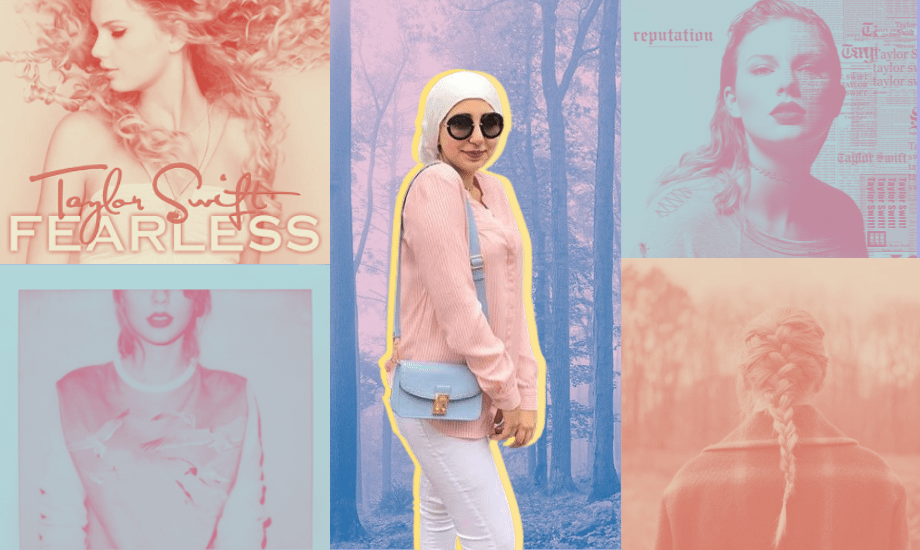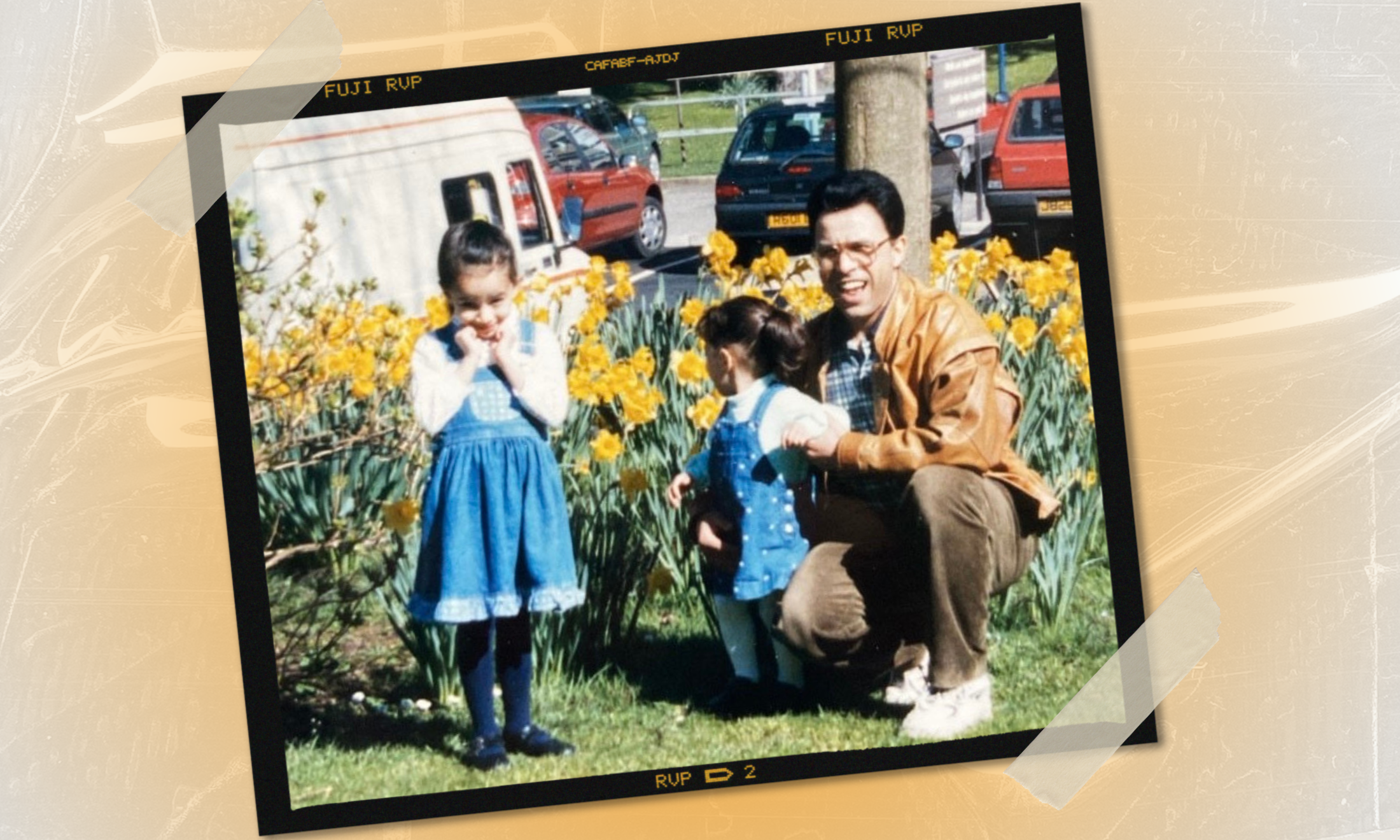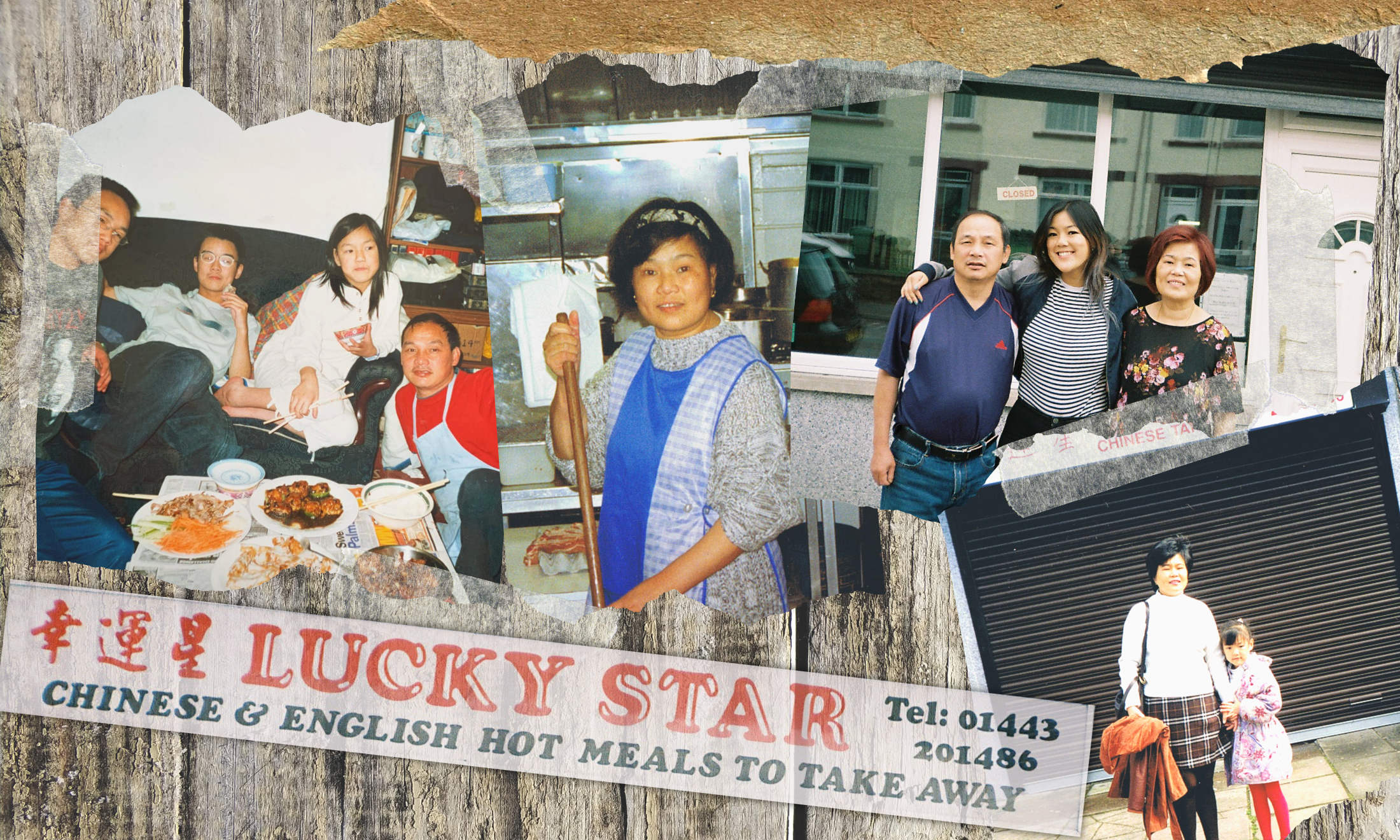
As a young Pakistani girl, Taylor Swift’s music helped me grow
Feeling external pressure to behave a certain way when she was growing up in Pakistan, Anmol Irfan reflects on how listening to Taylor Swift affected her journey into adulthood.
Anmol Irfan
19 Dec 2020
There’s something about Evermore, the new album by Taylor Swift, that takes me back to my nine-year-old self listening to ‘Love Story’ on repeat in front of my desktop computer. That was more than a decade ago, but the arrival of Folklore and Evermore this year seem to have opened a time capsule for me.
As a little girl in Pakistan, I dreamed of Prince Charmings, fairytales and perfect endings. Still, I felt surrounded by norms of what women and girls should be – which generally coincided with everything I wasn’t. Whether it was my choice of clothing, the way I talked, or my hobbies, I was always criticised for not being enough.
Music allowed me to transport myself. Whether it was ‘Love Story’ with its Romeo and Juliet fantasy, or listening to ‘Tied Together With A Smile’ when I was feeling low, I understood Taylor like an older sister. On the latter track, when she’d sing “You’re tied together with a smile, but you’re coming undone”, it seemed like my efforts at keeping up an outward persona were being recognised. Growing up, I felt a lot of pressure to keep quiet about thoughts that were starkly different from what everyone around me seemed to believe – little girls weren’t meant to question, only smile and nod. Songs like this allowed me the space to let my walls go.
‘You Belong With Me’s’ lyrics about someone who wasn’t typically ‘girly’ still being accepted for who she was made me feel less alone. But despite my emotional connection with it, I now stand firmly on the side of not comparing women to each other, which the song does by creating a ‘me vs. her’ narrative. Over the years, I have come to believe in myself more than tying my happy ending to a man. I have become far more political, and delved much deeper into my identity as a woman, as a Pakistani and as a Muslim along with the countless other parts of me.
I know now that Taylor and I are far from the same.
I’m aware of how she’s been labelled as a “white feminist”, and how those politics don’t tend to include women like me. I’ve seen, and been part of the criticisms of her dominantly white narrative and how she only appears to collaborate with white artists. My love for her music doesn’t justify that and I’ll never think it should. What it has done is allowed me to evaluate what parts are important to me, and how to make them truer to myself.
“I admired her shift towards a more outspoken identity in spite of years of set expectations, because it was something I have always struggled with myself in certain circles”
The impact her music has on me doesn’t seem to have changed. The way in which I perceive it continues to evolve, but then again I’ve noticed – so does Taylor, and she doesn’t apologise for it. When she was caught up in the Kanye West drama and got called a snake (the internet threw a ‘Taylor Swift is cancelled party’) she surprised us with something else. Owning the snake imagery, she dropped an album no one was expecting, 2017’s Reputation.
Gone was the quiet, sweet country girl who got her big break and I’d grown up with. This album was far louder, darker and unafraid of conflict. It was a direct hit at haters and made it clear that she had left the people-pleasing Taylor far behind. It seemed almost comforting to me. This was a woman who decided to take on a new part of herself, no holds barred – which was something I was trying (and am still trying) to do. I admired her shift towards a more outspoken identity in spite of years of set expectations, because it was something I have always struggled with myself in certain circles.
“I’m sorry the old Taylor can’t come to the phone right now – why? ‘Cause she’s dead”, she says in what has become one of her most famous lyrics. Sometimes that’s all I want – the courage to shed all of that baggage and internalised criticism like an old skin. But I think being political is far easier said than done. Sometimes quietly having your own beliefs can feel exhausting – the way I’ve been taught to not question my elders, or just go with the flow, seems like a battle in itself, when every thought I have is questioning the conversation going on around me. I think there’s a fear of being seen as too much, of having to explain every thought and every part of identity work that I choose to undertake and – as much as I hate it – sometimes silence just seems easier. Taylor’s Netflix documentary, Miss Americana also explored how she had been previously criticised for not being political enough and while I understand how important it is to use your voice when you have one, my own experiences remind me that there’s always more to the story.
Both Folklore and Evermore came after another big shift for Taylor. She had changed tune after Reputation for last year’s Lover, but while the latter felt more mid-journey in its mix of genres and upbeat vibe, the two sister albums of 2020 portray completion. Listening to Evermore feels symbolic of my own journey coming full circle.
“Growing up with Taylor Swift taught me both what I should be, and what I shouldn’t – both of which have been equally important in shaping my identity as the feminist I am today”
Back home in Pakistan after my time away at university, I’m resettling in ways I had never imagined. I’d worried moving back might mean falling into an old version of myself that I no longer wanted to be, uncomfortably unable to be as openly political as I’ve become. But there’s a certain closure that I’ve begun to find. When Taylor says in ‘Happiness’, “there was happiness because of me, and there’ll be happiness after me” I remind myself that my happiness isn’t constricted by outward measures. As things continue to fall into a place, much like Evermore, I’ve found a new middle-ground that allows me to simply be comfortable in all parts of my existence.
Taylor understandably struggled with the challenges of young fame, and her image has changed drastically over the years. She’s moved on from the walls she put up in Reputation. Allowing her poetic but not unrealistic vulnerability, mistakes and beliefs to all exist in the same space – I can’t help but feel a kinship to this journey.
Growing up with Taylor Swift taught me both what I should be, and what I shouldn’t – both of which have been equally important in shaping my identity as the feminist I am today. I think when you’re forced to question what parts of your childhood you can continue to take with you on your journey, you really start to understand what those parts brought to you in the first place.
Like most people I know, this year has had me looking back on my journey more than usual. I still have such a long way to go but, as Taylor says, “all you want is the green light of forgiveness, but you haven’t met the new me yet and I think she’ll give you that.” I’m slowly learning how to forgive myself, and forgive the grudges I held towards people and circumstances.
In growing up with Taylor Swift’s music, I feel like I have learned to embrace my womanhood, and found some universality in that, despite our differences.









